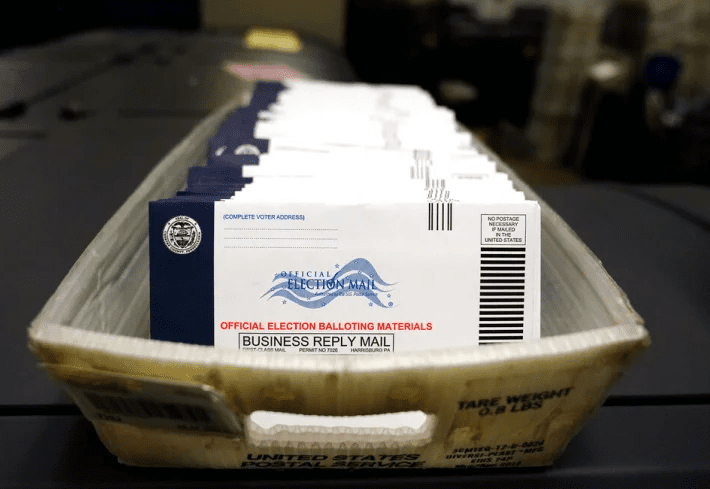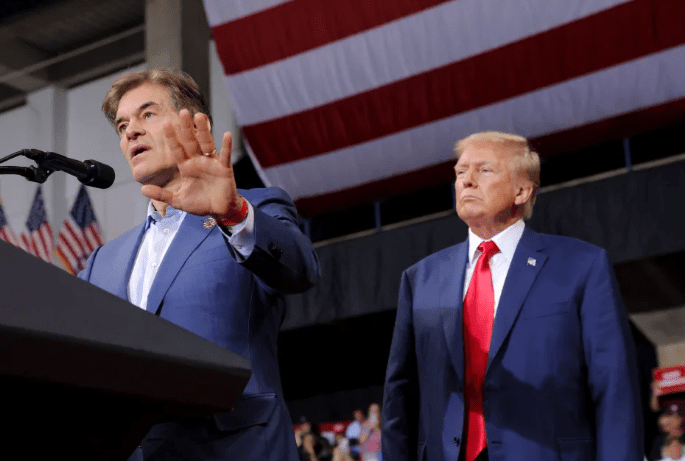In advance of the pivotal elections in November, a ruling by the Pennsylvania Supreme Court may encourage more people to cast ballots.
A legal challenge to Pennsylvania’s broadening of mail-in voting was rejected by the state Supreme Court on Tuesday. The lawsuit was brought by some of the same Republican state politicians who supported the measure almost three years prior.
Millions of state voters have opted to mail in their votes in prior years, but Democrats have utilized this option considerably more frequently, and Republicans are less supportive of the rule now that former President Donald Trump criticized it during his unsuccessful 2020 reelection campaign.
Due to the 5-2 decision, which saw both of the two Republican justices cast no votes, there will very probably be increased vote-by-mail for the governor and US Senate primaries in November.
In the majority judgment, Justice Christine Donohue stated, “We see no restriction in our Constitution on the General Assembly’s capacity to establish universal mail-in voting.”
Michael Dimino, a professor at Widener Law Commonwealth who argued the case, declined to comment right away.
"We find no restriction in our Constitution on the General Assembly’s ability to create universal mail-in voting.”
The Pennsylvania Supreme Court has ruled that our mail-in voting law is CONSTITUTIONAL.https://t.co/mDMqfcxa8L
— PaSenateDems (@PaSenateDems) August 2, 2022
In January, a lower court panel with a majority of Republican justices struck down the law; however, the decision was postponed while the state Supreme Court considered an appeal by the Democratic Governor Tom Wolf’s administration.
The justices agreed with Wolf’s claim that the lower court erroneously based its conclusion on court decisions that addressed earlier iterations of the state constitution and had invalidated legislation implemented in 1839 and 1923 to increase absentee voting in the new decision.
The majority cited the Pennsylvania Constitution’s “method of elections” clause, which states that all elections must be conducted “by such other mode as may be prescribed by law” in addition to by ballot.
The current state constitution, according to Wolf’s attorneys, should not be interpreted to forbid voting by mail for anyone other than those who are physically unable to vote in person, are ill, are out of town on business, are performing election day duties, or are participating in a religious observance.
They said that although neither is specifically authorized by the state constitution, the constitution simply sets minimum requirements for absentee and mail-in votes, minimums that have been exceeded for decades by allowing military spouses and those on vacation to cast absentee ballots.
The mail-in voting statute was also challenged in court last month by 14 Republican state legislators. This case is based on a clause that states that if any of the legislation’s provisions are overturned in court, the entire statute is null and invalid.
According to the complaint, the 3rd US Circuit Court of Appeals panel’s judgment on May 20 regarding the law’s requirement that mail-in votes contain a voter’s handwritten date on the outer envelope triggered the “non-severability” clause. A federal appeals court panel said that a voter’s eligibility for a Lehigh County judicial contest in November was unaffected by a scrawled date.
No-excuse absentee voting is currently permitted in more than half of the states. In 2019, when Wolf ratified a pact that also eliminated the straight-ticket voting by party option on ballots, Pennsylvania joined them. But as Trump started making unfounded assertions that mail-in voting was plagued with fraud and pushed Republicans to shun it, many Republicans grew disenchanted with the law.
In order to limit mail-in voting, Republican lawmakers have increased picture ID requirements and outlawed drop boxes.
State Senator Doug Mastriano of Franklin County, the GOP’s candidate for governor, voted in favor of the measure but now wants to have it repealed.
In an attempt to reverse Democrat Joe Biden’s victory in Pennsylvania, Republicans filed a post-election lawsuit in 2020 seeking to void the mail-in voting statute and nullify all ballots cast under it. The plaintiffs “failed to engage with due diligence” by delaying their legal challenge of the statute until after Trump’s defeat, according to the state Supreme Court, which threw it out. Appeals to intervene were denied by the US Supreme Court.
the source used in the preparation of the news: https://www.aljazeera.com/




